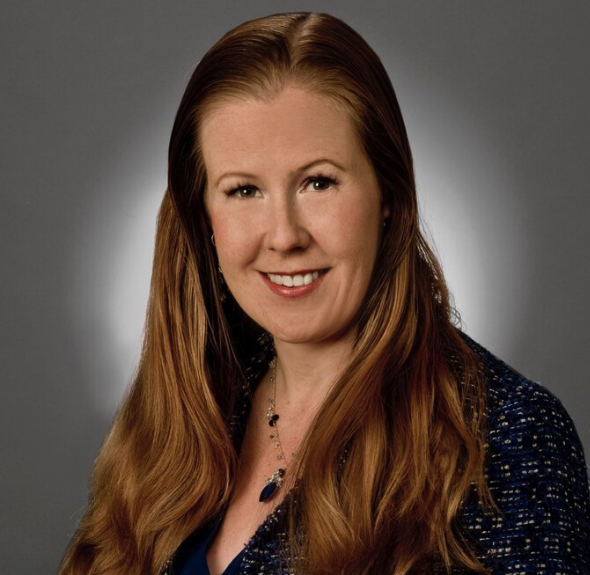Utilizing Discovery Referees and Special Masters to Avoid Delay
in COVID-Backlogged Courts - Part 1
By Diana Kruze

With COVID closures, a long backlog of civil trials, and budget cuts, courts are turning to Referees and Special Masters in 2021 to help parties resolve their discovery disputes.
Not only are courts looking to Referees for help, parties themselves are turning to private judges to save their clients time and money. Discovery is widely blamed – accurately so - for most of the costs associated with litigation. According to a pre-pandemic economic survey, discovery accounted for 60 percent of litigation costs in cases where the amount in dispute was between $1 and $25 million.[1] Moreover, these numbers, unfortunately, have likely gone up with new privacy laws requiring specialized redactions, the emergence of new data sources to be preserved and searched (from personal hard drives to wearables), and the increased costs of document review.
With COVID delays, some parties have reported having their hearing dates on simple discovery matters set for about 6-12 months from the dates they were originally booked. Statistics bear this out. In the Northern District of California – widely regarded as having a panel of very hard working judges– the average time from filing to disposition in civil cases has increased more than 30 percent between 2020 and 2021.[2] While the State of California has yet to release 2021 figures, their 2020 Court Statistics Report (which covers fiscal year 2018-2019) also presents a bleak picture. In San Francisco Superior Court, more than 50% of civil cases were still on the docket after more than one year, with close to 15 percent still languishing in the courts after two years.[3] As the popular legal saying goes, "justice delayed, is justice denied." As the popular legal saying goes, "justice delayed, is justice denied." And as any attorney will tell you, when it comes to discovery, delays can also be extremely expensive.
Besides mounting costs, there are other worrisome challenges from COVID delays. Discovery is an important aspect of most cases, and not getting the right discovery can affect the case in its entirety. Now, imagine not getting discovery at all as your motion languishes on an overcrowded docket. Prolonged discovery also burdens client employees with litigation-related work and creates unnecessary data compliance concerns. Consequently, attorneys and in-house counsel are also voluntarily seeking Discovery Referees to save their clients time and expense.
This two-part article will explore how Bay Area attorneys can effectively utilize Discovery Referees to resolve disputes expeditiously.
What Is A Discovery Referee or Special Master?
A Discovery Referee (also referred to as a Special Master or Private Judge) is generally appointed by a court, the parties or an arbitrator. Discovery Referees serve three functions:
- Negotiation/The “Meet and Confer” Special Master
Many Referees facilitate discussions around preservation agreements, search terms, sources, and general protocols regarding discovery and ESI. As the name implies, the goal of this type of Referee is building bridges of communication between opposing counsel to help the parties conduct successful meet and confers and reach negotiated agreements.
- Investigation/The “Sanctions” Special Master
A court generally appoints an Investigative Referee to review alleged non-compliance with discovery rules and court orders. An Investigative Referee engages in initial fact-finding and then makes recommendations on production and, if appropriate, sanctions.
- Adjudication/The “Discovery Judge” Special Master
The primary duty of this type of Referee is to make decisions regarding discovery disputes where the meet and confer process has failed and a live dispute remains. Depending on the level of authority instilled in the Referee, Discovery Referees can issue either a binding decision or a report and recommendation to the arbitrator or court who will then make the final decision.

With COVID delays, some parties have reported having their hearing dates on simple discovery matters set for about 6-12 months from the dates they were originally booked.
How to Request A Discovery Referee
The process of appointing a Discovery Referee or Special Master differs between various courts. In California Superior Court, for example, the process is codified at California Code of Civil Procedure section 638 for voluntary appointments and section 639 for court-mandated appointments.
For involuntary, court-mandated appointments in California state court, a court may appoint a Referee either upon written motion or sua sponte. While courts are generally not allowed to delegate their judicial authority under the California Constitution, section 639(a)(5) specifically allows certain enumerated decisions to be delegated to a Referee, including discovery motions and disputes relevant to discovery. With respect to the costs of the Referee’s services, the court evaluates the parties’ ability to pay and may order payment and division in any manner that is fair and reasonable. It is very common for a court to split the costs of fees equally among the parties unless one of the parties cannot afford it.
For voluntary, party-driven discovery references, parties may stipulate to the appointment of a Referee to determine “any or all of the issues” in the action or to “ascertain a fact necessary to enable the court” to decide the case. California Code of Civil Procedure § 638(a), (b). The stipulation should allocate the costs of the Referee’s services in any way the parties deem appropriate. Like an involuntary reference, most parties chose to bear the costs equally, or have the losing party pay. The parties can empower the Referee as much or as little as they wish. With voluntary appointments, many parties give Referees full and final power over discovery disputes so that neither side is subject to the uncertainty and potential delay of an “appellate” review by the trial judge. Under a full appointment stipulation, the Referee issues a binding decision which the trial court must accept. If appropriate, however, parties are also free to only carve out a limited discovery issue to a Referee, or only allow them to issue recommendations which are then reviewed by the trial court. If you are stipulating to a Discovery Referee, most experienced special masters have detailed appointment templates that you can quickly modify to meet the needs of your own case. In California, the Judicial Council also provides form ADR-109 which parties can utilize for an appointment request.
In California Superior Court, Orders of Reference (a judge’s referral decision appointing a Referee), whether voluntary or involuntary, must always be in writing. Reference Orders must always include:
- The Referee’s name, address, telephone number, and state Bar number
- the Referee’s signature indicating consent to serve and compliance with judicial ethics canons
- The Scope and subject matter of the reference, including the Referee’s power to set hearings, issue subpoenas, review evidence and to rule on objections, motions, and other requests made during the hearing
- The Referee’s hourly rate and how the Referee’s fees will be allocated among the parties.
Orders on involuntary discovery references must also include a determination of ability to pay, the “exceptional circumstances requiring the reference, which must be specific to the circumstance of the particular case” and, if requested, the maximum number of hours that a Discovery Referee can work. California Code of Civil Procedure § 639(a)(5) and (d)(2).
Choosing the Right Discovery Referee
There are many important considerations for selecting the best Discovery Referee for your case:
- Availability. Choose a Discovery Referee who is willing to make time for your case now, and issue decisions quickly. Much of the benefit of a Discovery Referee is lost if their schedule is too full to accommodate quick hearings.
- Cost. Some Referees charge more than a thousand per hour; others charge $400-500. More expensive does not necessarily equate to a higher level of decision-making. Ask a candidate how much time they typically spend on evaluating, hearing and deciding a discovery motion on a motion to quash a subpoena, for example, to get a good sense of budgeting.
- Experience with Discovery Motions. Look for a Referee who has been in the trenches of discovery. Your decision-maker should be aware of the practical realities and real-world costs associated with production and collection of certain types of information.
- Experience with eDiscovery. If you have a case with ESI, you need a Referee with extensive eDiscovery experience so that they can effectively harness technology to save both sides time and money. Good interview questions include their approach to search terms and custodians. Also inquire as to their experience with eDiscovery when they were a practitioner.
- Knowledge of Underlying Legal Issues. While not an absolute requirement, this is certainly a plus, especially where relevance objections are at the forefront of disputes. If you have a high tech case or specialized claims, it may be helpful to have a Referee with ERISA or patent law, for example.
- Conflicts. A Referee should disclose any significant personal or professional relationship the Referee has or has had with any party, counsel or insurance company involved in the case. The Referee must also make further disclosures as required by the Judicial Canons of Ethics.
Ideally, the parties will agree to a specific person to serve as their Referee. In California state court, if the parties are unable to reach an agreement, both parties may submit to the court up to three nominees, and the court then appoints the Referee. If you are litigating who should be selected as your Referee, make sure to give the Court your nominee’s Discovery Referee-specific resume, and a short description of the above issues that make the nominee a good choice. If the Court selects a Discovery Referee that you do not believe is a good fit for your case, you may move to disqualify a Referee under California Code of Civil Procedure §170.6 within 10 days of the notice of appointment if there is reason to believe that the Referee is not, for example, competent or is biased.
Part 2 of this article, coming in the next issue of San Francisco Magazine, covers the benefits of a Referee and tips on how to maximize efficiencies.
ABOUT THE AUTHOR:
 Diana Kruze is an award-winning mediator, arbitrator and discovery referee with Judicate West. As a former judicial officer, litigation partner at Morrison Foerster, and mother of three young children, Diana is not your average neutral. She has successfully resolved complex patent cases and small family disputes alike. With her breadth of experience and contagious optimism, Diana utilizes diplomacy, thorough preparation, and effective case management to bridge new channels and finesse through barriers to resolution.
Diana Kruze is an award-winning mediator, arbitrator and discovery referee with Judicate West. As a former judicial officer, litigation partner at Morrison Foerster, and mother of three young children, Diana is not your average neutral. She has successfully resolved complex patent cases and small family disputes alike. With her breadth of experience and contagious optimism, Diana utilizes diplomacy, thorough preparation, and effective case management to bridge new channels and finesse through barriers to resolution.
Learn more at: www.adrbydiana.com
